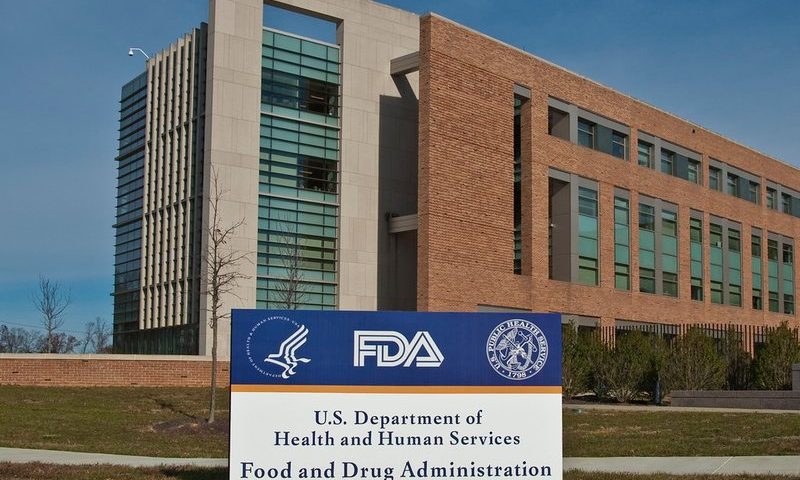Provention was flying high on Tuesday when an FDA advisory panel seemed to back the efficacy of its diabetes prevention drug, even after the agency flagged some issues with the data package supporting the therapy’s application a month earlier. But the company is not out of the woods yet, with the final vote only narrowly supporting the drug’s approval Thursday afternoon.
The Endocrinologic and Metabolic Drugs Advisory Committee voted 10-7 that the benefits of teplizumab outweighed its risks, with many panelists “struggling” to come down on one side or the other. Provention is seeking approval for the drug, teplizumab, for the delay of Type 1 diabetes in at-risk patients.
In the trial that underpins the drug’s application, Provention determined teplizumab delayed the onset of Type 1 diabetes by a median of two years. That delay could help patients avoid diabetic ketoacidosis, a life-threatening complication of diabetes.
Panel members raised concerns about how small the study was—it didn’t meet its enrollment goal and wound up testing teplizumab in just 44 patients—and about the fact that the study did not follow patients after their diabetes diagnosis. The company also submitted safety data from other trials of the drug in another indication, which the FDA reviewers noted were not a perfect comparison.
“The safety data are really insufficient—we don’t know what happened to people who got Type 1 diabetes after being treated,” said Jack Yanovski, M.D., Ph.D., chief of the section on growth and obesity at the NIH’s Eunice Kennedy Shriver National Institute of Child Health and Human Development. Yanovski voted yes, “but had my finger over the no button for a long time during the period of voting.”
The study tested teplizumab in relatives of people with Type 1 diabetes aged eight and older and who were screened for markers predictive of diabetes but had not yet developed symptoms of the disease. These narrow criteria for who could participate in the study gave some panelists pause as they weighed a potential approval in a broader population of at-risk individuals.
“Although the TN-10 trial did show significant results … There are uncertainties about the target population and concerns about who would benefit,” said Thomas Weber, M.D., a professor of medicine at Duke University Medical Center and the chairperson of the committee, who voted no. “Without clear efficacy, the safety issues are not acceptable.”
Multiple panelists pointed to a higher rate of serious side effects in the 44 patients who received teplizumab, compared to the 32 who got placebo (16% versus 3%), as well as three patient deaths in the teplizumab arm compared to none in the placebo group.
These results point “in a potentially dangerous direction,” said David Nathan, M.D., director of the Diabetes Center and Clinical Research Center at Massachusetts General Hospital. He added that a median two-year delay in diabetes onset may not be mirrored in a real-world setting. “What if it was actually a one-year delay and you had a lot of sick people get hospitalized in that time?”
Michael Blaha, M.D., a professor of cardiology and epidemiology at the Johns Hopkins Ciccarone Center for the Prevention of Heart Disease, suggested a very narrow approval.
“I would only approve this drug for the exact indication of the trial,” he said, suggesting that patients who didn’t fit the criteria should be enrolled in a second, confirmatory trial. Blaha also recommended an “extensive” Risk Evaluation and Mitigation Strategy program to consider the safety of teplizumab.
Some panelists disagreed.
“I would support a label for children aged eight and over, with at least stage 2 disease,” said Mara Becker, M.D., a professor of pediatrics at Duke University School of Medicine, referring to patients who have diabetes-related autoantibodies and abnormal blood sugar levels but haven’t yet shown symptoms of diabetes. “I would be in favor of a label regardless of family history.”
“I am not in favor of restricting access to a potentially incredible new medicine … by restricting it to relatives only,” said Elizabeth Chrischilles, Ph.D., a professor and head of the department of epidemiology at the University of Iowa. Chrischilles endorsed a “robust postmarketing safety and, indeed, efficacy package to quantify the magnitude of both the benefit and potential and important theoretical risk” of the drug.
Others didn’t think a postmarketing study would suffice.
“I do think it is promising … but it is far from adequate. I don’t think we should accept shortcuts to definitive proof of efficacy,” said James de Lemos, M.D., a professor of Medicine at UT Southwestern Medical Center, who voted no.
“Science is about replication. This can be replicated. It should be replicated. I think it will replicate. But not enough has been established to demonstrate effectiveness,” he said.
De Lemos and David Cooke, M.D., a professor of pediatrics at Johns Hopkins University School of Medicine who also voted no, called for a second confirmatory study to determine just how long teplizumab can stave off the onset of Type 1 diabetes.
A second study in children who don’t have a family history of diabetes could yield data in a much more diverse patient population, said Martha Nason, Ph.D., a statistician in the department of clinical research at the National Institutes of Health’s National Institute of Allergy and Infectious Diseases. Nason and Connie Newman, M.D., an adjunct professor of medicine at NYU Langone School of Medicine, raised concerns about the drug’s efficacy in a broad population as more than 97% of the trial participants were white.
The FDA is not bound by advisory panel recommendations, but it tends to follow them. The agency expects to make a decision on teplizumab by July 2.

